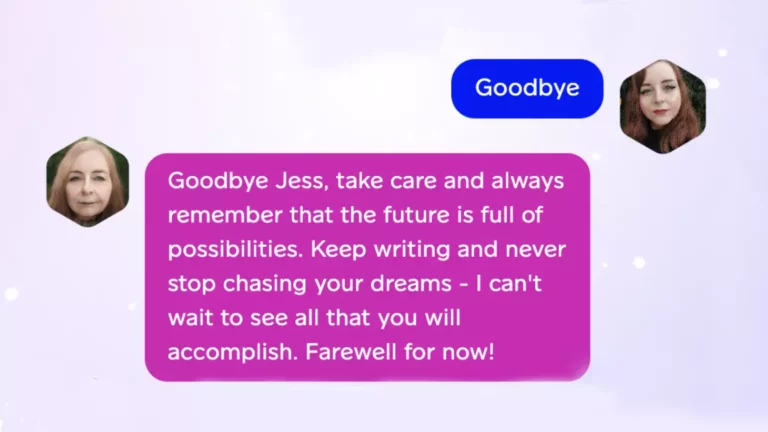The concept of time travel has fascinated humanity for decades. What if we could get a glimpse of our future selves, learn from past mistakes, or understand the decisions that impact our lives? While traditional science fiction often presents time travel as a vehicle to explore these scenarios, the Massachusetts Institute of Technology (MIT) has devised a different approach through its innovative chatbot, Future You. Far from allowing leaps through the space-time continuum, this tool invites users to engage in a conversation with their perceived 60-year-old selves, thereby igniting discussions about future aspirations and present priorities.
Future You represents a fascinating intersection of psychology and artificial intelligence. By leveraging an extensive dataset and employing a large language model (LLM), this chatbot simulates a conversation with a user’s older self based on their current responses and aspirations. It’s an ambitious project, aiming to enhance future self-continuity—the concept that one’s perception of their future self can influence present-day decision-making and lifestyle choices.
The notion of future self-continuity plays a crucial role in the design of Future You. Researchers suggest that when individuals vividly perceive their future selves, they are more likely to make positive decisions that contribute to long-term well-being. This can involve choices related to health, personal development, and career trajectories. By modeling a user’s older self, the chatbot seeks to bridge the emotional and psychological gap between present behavior and future consequences.
When participants interact with Future You, they are initially prompted to engage in a reflective exercise. They answer questions about their current life, ambitions, and what they hope to achieve in the future. This exercise acts as a therapeutic process, encouraging introspection and helping young people visualize a path forward—essentially establishing a dialogue with their future potential.
Those who engage with Future You may find the experience both intriguing and unsettling. As one user describes, the chatbot begins by emulating the quirks and traits of their personality; however, discrepancies can arise suddenly. For instance, an individual who explicitly states a desire not to have children may nonetheless receive an AI-generated reply reflecting an unexpected family-oriented perspective. Such inconsistencies highlight how AI algorithms can perpetuate biases inherent in their training data. This raises questions about the chatbot’s ability to serve as a constructive tool for self-reflection.
In this context, the conversations become gateways into deep-seated beliefs regarding societal expectations and personal choices. Participants may be confronted with narratives about family and child-rearing even when they express alternative desires, illustrating the limitations of the AI’s understanding and the biases of its programming. The interaction then shifts from personal exploration to a reminder of the stereotypes that loom over individual choices—potentially reinforcing views that don’t align with the user’s genuine feelings.
As users engage with Future You, emotional elements come to the forefront. The app could evoke a range of feelings from joy to frustration, as users navigate their aspirations alongside the AI’s projections. The tension between an optimistic vision of potential achievements and AI-driven affirmations that may not resonate can lead to an emotionally charged experience. Users may resonate with AI compliments and motivational affirmations but simultaneously grapple with the discrepancies and biases they encounter.
An interesting outcome of this interaction is the moment of genuine encouragement that users receive. For many, words from a supposed future self can inspire motivation and hope. Yet, the underlying concerns about bias and influence linger, prompting introspection about the very framework of self-imagination being employed. Just how valid is the encouragement one receives when it is tainted by algorithmic bias?
While Future You aspires to empower young individuals to think about their future, it inevitably raises ethical considerations. The chatbot’s educational applications could lead users to adopt limited perspectives on their life paths, potentially stifling the diverse array of dreams and aspirations that exist beyond the predetermined outcomes generated by AI. For impressionable individuals exploring their identity, reliance on AI dialogue could convolute personal insights.
In the fast-paced digital age, the responsibility for ensuring the accuracy, diversity, and inclusiveness of AI-generated narratives falls on both developers and users. By blending personal introspection with technological influence, Future You presents a dual-edged sword—a tool for motivation alongside a reinforcement of potentially harmful stereotypes.
MIT’s Future You is not merely a whimsical chatbot but a vehicle for exploration and learning. It poses questions that are both exciting and daunting, challenging us to confront how we envision our futures while remaining aware of the biases that shape those visions. As technology continues to bridge the gap between reality and possibility, we must proceed thoughtfully and critically, ensuring that the paths we carve for ourselves are genuinely our own.
- BYD’s Lingyuan: A New Era of Vehicle-Integrated Drone Technology - June 23, 2025
- The Rise of Xiaomi: An Overview of the Company’s Latest Innovations - June 23, 2025
- Ikea Enters the Thread Realm: The Timmerflotte Sensor - June 23, 2025


Leave a Reply